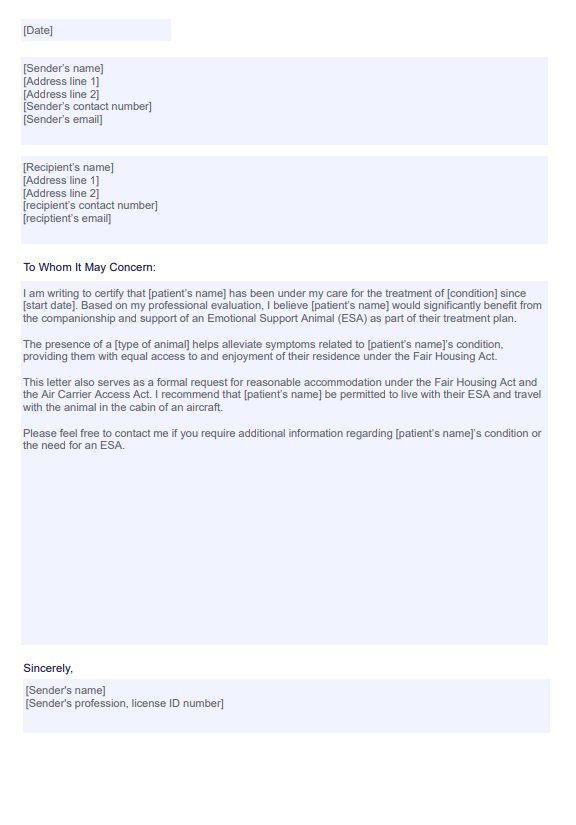Landlords are generally required to accommodate ESAs under the Fair Housing Act, but airlines are no longer required to do so under recent Air Carrier Access Act changes. However, a landlord or airline can deny accommodation if the ESA poses a direct threat to the health or safety of others, causes significant property damage, or if accommodating the ESA would create an undue burden.

ESA Letter Oregon
Get your ESA Letter in Oregon for essential mental health support. Access compassionate healthcare services for emotional support animals, ensuring your well-being.
ESA Letter Oregon Template
Commonly asked questions
If your ESA letter is denied, you should first request a written explanation. You may seek legal advice to explore your options under the Fair Housing Act or Oregon ESA housing laws. Filing a complaint with the U.S. Department of Housing and Urban Development (HUD) or seeking mediation may help resolve the situation.
Typically, an ESA letter is issued for a single emotional support animal. However, if a licensed mental health professional determines that multiple animals are needed for your mental or emotional health, they may provide separate documentation for each animal. Discuss this with your mental health provider to ensure proper documentation.
EHR and practice management software
Get started for free
*No credit card required
Free
$0/usd
Unlimited clients
Telehealth
1GB of storage
Client portal text
Automated billing and online payments











